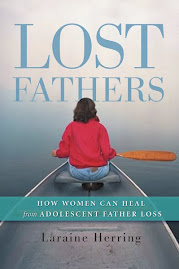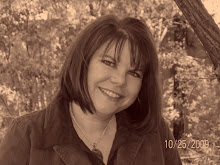Author Joan Didion tells us, "We are well advised to keep on nodding terms with the people we used to be, whether we find them attractive company or not. Otherwise they turn up unannounced and surprise us, come hammering on the mind's door at 4am of a bad night and demand to know who deserted them, who betrayed them, who is going to make amends. We forget all too soon the things we thought we could never forget."
I thought I would never forget the sound of my father's voice. The way he smelled after shaving. The way his polio-eaten leg hung loose in his wide-legged pants.
But I have.
I hear his voice on an old tape and I think -- no, that isn't him. That isn't what he sounded like. I sit next to a man who uses Mennen After Shave and I remember, but then I shake my head. No. That's not quite it. I conjure up his image in the La-Z-boy chair, scratching his foot with a putter, but I can't quite see. The edges have gotten blurrier than I thought possible.
Of course, I never thought there would be 23 years of him dead.
I thought I would never forget my first lover's touch. The way my grandmother's homemade chocolate cake (the only thing she could make) tasted. The way our house on Springfield Drive pulsed.
But I have.
I can pretend, but there's no point in that because the pretending enforces the illusion of permanence -- that illusion that has caused me untold nights of suffering. That illusion that has kept me hanging on to the ghosts that walk behind me. I was so afraid that if I didn't hold on to everything that had ever passed through me that I would lose it all. That holding pulled me deep into the swamp. It wrapped itself around me, delighted to be of service.
Holding on doesn't do what you think it'll do. Snuggling up in the scents of those long gone doesn't keep them with you. It keeps you stuck. Replaying the way you remembered the first kiss, the last touch doesn't sear those moments into your soul. It wears grooves into your flesh instead.
In "Rescue Me", Tommy walks around Brooklyn with his ghosts following him. Even when he lets them go, they still pop up like mad Jack-in-the-boxes. Sometimes I think the ghosts follow us. Sometimes I think we leave breadcrumbs. I don't suppose it matters much. What seems to be the truth is that every moment we have experienced has been absorbed by our cells. Those moments become transformed as we integrate with them. They do not remain in their original form. Stasis is not a natural state. Motion, transformation, integration -- these things occur over and over and over. This becomes that becomes this becomes that. No stopping.
One day I will forget the things I cannot imagine forgetting, and one day there will be no one left to remember me. But this is not the Great Tragedy I once perceived it to be. This is just an opening and a closing. A breathing in and a breathing out. It is all there ever was.



















